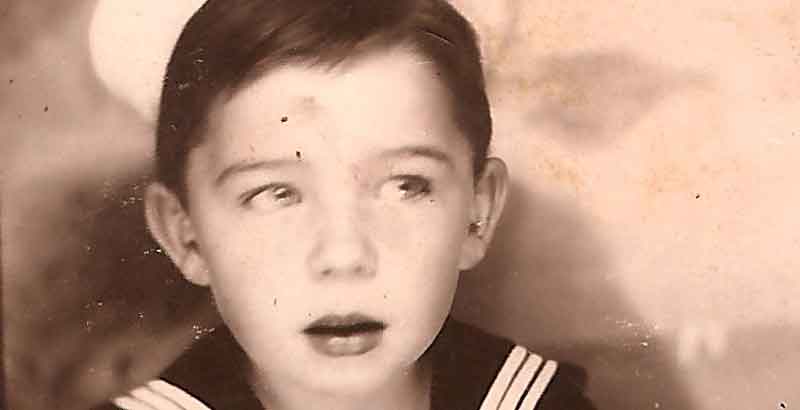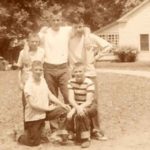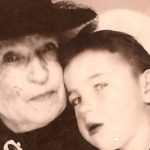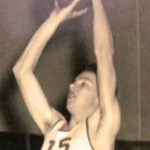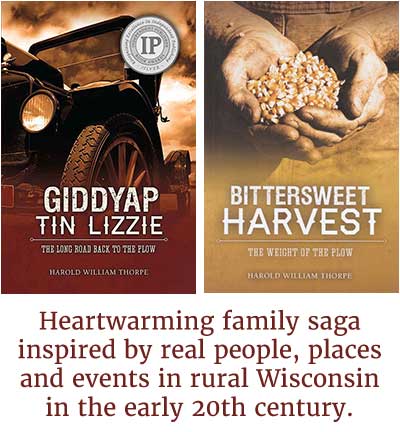I was terrified when she turned around and I saw it wasn’t Mother—a lost three-year-old on one of the busiest sidewalks in one of the busiest cities in America. I broke into tears, and my screams attracted attention.
I had been thrilled when Mother told me she’d take me downtown shopping.
Downtown was an exciting place. We lived in North Long Beach, California, adjacent to L.A. It was early fall in 1941, three months before Pearl Harbor. Although we weren’t at war, war clouds were gathering. Long Beach was home to Douglas Aircraft Co., one of our nation’s prominent airplane manufacturers, and it was home to our Pacific fleet, too.
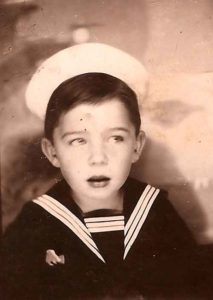 Sailors caught my attention. I couldn’t keep my eyes off their striking black and white uniforms, especially their dashing caps. Those sailors overran the downtown streets. They walked briskly and self-confidently along the sidewalks, their caps jauntily tilted toward the sides of their heads. I’d been given my own sailor suit on my last birthday—a sailor cap, too, and I wore it whenever I came downtown. I wanted to be a sailor.
Sailors caught my attention. I couldn’t keep my eyes off their striking black and white uniforms, especially their dashing caps. Those sailors overran the downtown streets. They walked briskly and self-confidently along the sidewalks, their caps jauntily tilted toward the sides of their heads. I’d been given my own sailor suit on my last birthday—a sailor cap, too, and I wore it whenever I came downtown. I wanted to be a sailor.
We didn’t own a car, so Mother and I took the bus to the city’s center. We’d spent the morning shopping, although we stopped for an ice cream treat—I suppose to keep me happy, but that wouldn’t have been necessary. I was awestruck by hordes of heroes all around.
Maybe that’s why I wasn’t as cautious as usual. I couldn’t take my eyes off those magnificent men in uniform, and they responded to my intent gaze by tipping their hat or offering a crisp salute. I supposed that my sailor uniform let them know I wanted to be one of them. I was ready to follow those men to their ship and request assignment.
Then it happened. We’d entered the city’s largest department store, and it was filled with people. I followed Mother along, and like usual, I stayed close by grasping her long, tan fall coat. Sometimes I’d get distracted by something interesting and I’d lose sight of her, but I’d soon find that tan coat and grasp hold again. I was beginning to think that she was going to stay in that store forever. I wanted to get back outside with the sailors and was happy when she finally turned toward the store’s front door.
I continued to follow Mother for two or three blocks down the street, and that’s when Mother turned around, but I didn’t recognize her. It wasn’t Mother. I stood there terrified while she continued up the street. I was alone on what was an unfamiliar bustling city street. I was lost! I screamed so loud that I attracted lots of attention.
That’s when my rescuer appeared—not a heroic sailor but a teenage paperboy on his bicycle. He calmed me down and asked if I knew where I lived. Stifling tears, I repeated my address from memory. Mother had taught me my address as soon as I was old enough to leave the house on my own.
The paperboy kept talking and calming me, telling me that he’d make sure I got home. I’m not sure if he planned to take me across town or if he was going to find a policeman. I never found out, because at that moment, Mother showed up to rescue me. I didn’t know how she ended up in the right place, but I was mighty relieved.
I did have a change of heart that day. I decided that I wouldn’t be a sailor after all. Maybe being a paperboy would be a better choice.

